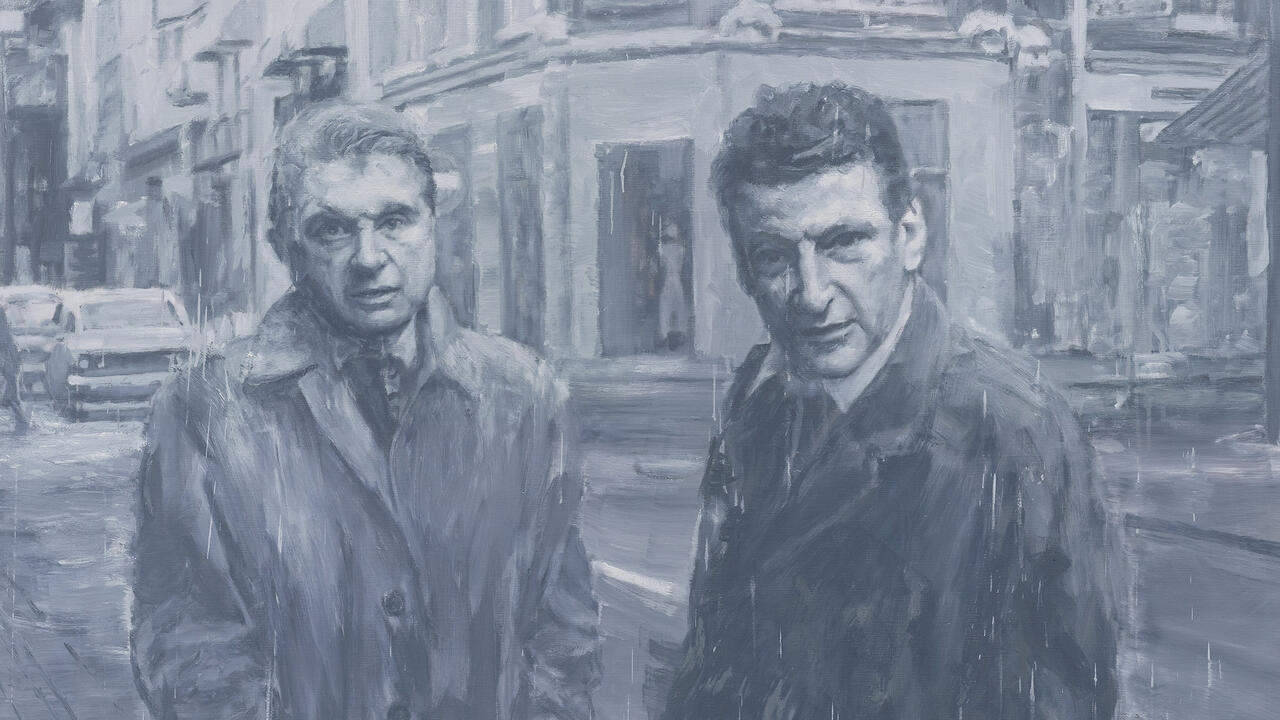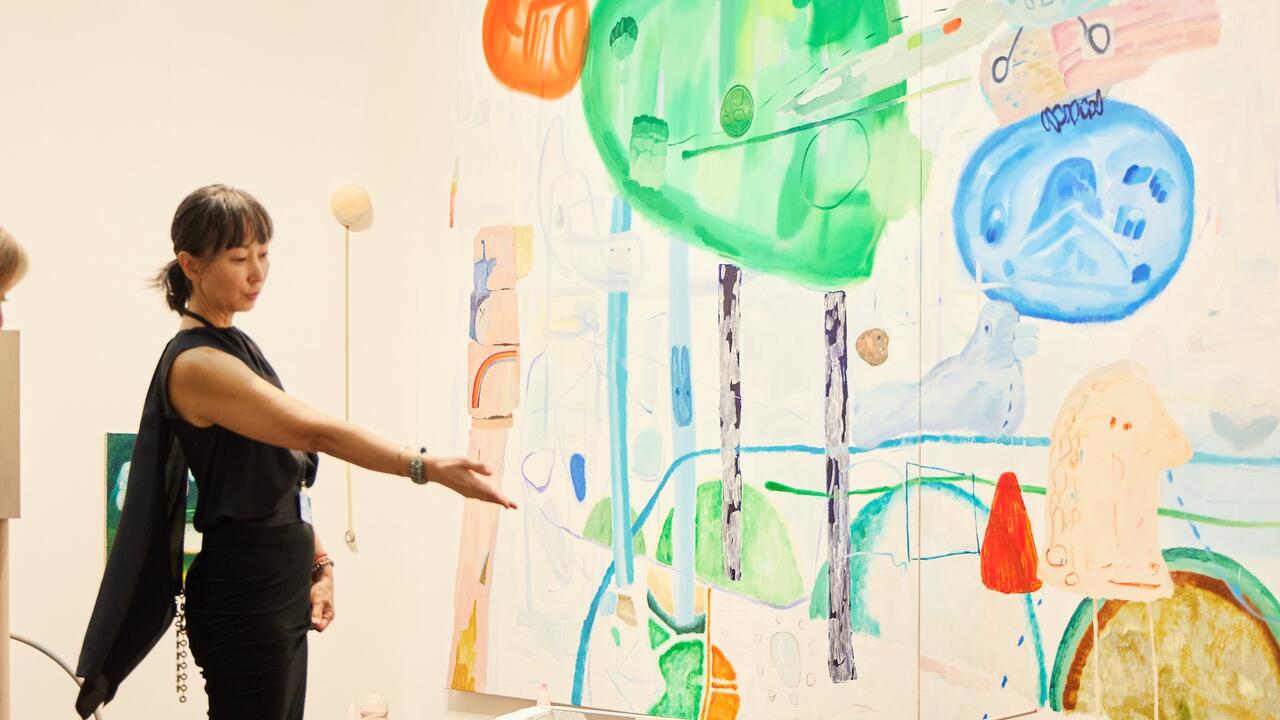Air de P-P-Paradis
It is about 30°c when I arrive at the opening of ‘Air de P-P-Paradis.’ It’s a sultry Saturday afternoon, the doors to The Stedelijk Museum Bureau Amsterdam stand wide open and people are spilled out onto the street in front all drinking Ricard. The front space of the Bureau is painted bright yellow, even its floors, making the neon lights seem like they are emitting sun, lots of sun. I have to blink. There’s a smell of anis here and it’s hot. The only ‘thing’ in this room is a small black and white surveillance monitor hung high at the back of the space showing an image the main gallery area. Further towards the main space, a poster of a photocopied and blown up French text, glued crookedly and deliberately made to seem collaged reads:
"We live today under a new world order,
The web which weaves together all things envelops our bodies,
Bathes our limbs,
In a halo of joy.
A state to which men of old acceded only through music,
Greets us each morning commonplace." But in French.
There’s not much tangible in the main gallery but it feels somehow full, full of heat and sound. The sound is a loungy, happy drone coming in through the many little round speakers mounted into the walls, creating a luscious, murmured ambience. There’s a carpet on the floor, lilac and purple - a nice looking carpet - with a big, hip but tacky, black leather rose lying on a corner of it. There are two square black paintings on the wall opposite. It’s all very subtle and composed. Filtered sunlight bathes the gallery in a warmer glow. A hot glow. A bead of sweat drips down the back of my leg and I pretend not to notice when all of a sudden I hear a loud scratching static sound. The music has turned sour, turned into noise. I worry for a second thinking something must have gone wrong and then realise as the ambient twiddle returns that it was all rehearsed. The noise was supposed to be. The static is composed.
Then a woman appears dressed in Viktor & Rolf fall collection, shiny black, very wide pants, her hair feathered and sprayed 80s style up off of the face. She walks to the carpet and without any introduction commences a ‘dance’ (Air Guitar). She moves slowly, smoothly, often completely horizontal and close to the ground, balancing with an amazing acrobatic control.
I stay for the full 30 minutes of the choreography and then decide I need a Ricard.
Nina Folkersma guest curated ‘Air de P-P-Paradis’ using Michel Houellebecq’s notorious novel, Atomised, (1999) as a source of inspiration. Hence the quoted French text on the wall (from the prologue) and hence the sponsored Ricard.
Folkersma says to have aimed to create a world which appears enchanting and glamorous and French but which, underneath, is sick, corrupted and…still French seeing as, according to her, Paris is once again the booming capital of culture (witness Air, St. Germain, Cassius, Purple, Crash, Houellebecq…).
‘Air de P-P-Paradis’ is a total experience, or better said: a set. It sounds and works more like a perfume than a show: It’s scent is formed not through the individual parts but by way of the whole: from its smart yellow entrance, the mesmeric music and the carefully selected few objects to Houellebecq’s novel and the glamour turned tainted tone it establishes.
The soundtrack of the show is a co-production, composed by Bertrand Burgalat (French musician-producer known for his record label Tricatel, his recent solo album Sssound of Mmmusic and his collaborations with the likes of Laibach and Einstürzende Neubauten) and Nathalie Bruys (Dutch sound artist). Mascha de Vries (also Dutch) did the interior and the choreography (together with Lars Eijssen). It was she who selected the black rose, the carpet, the paintings, and the dancer who performed. She styled the show.
This is not an exhibit (as in an ‘ensemble of stuff’) it is an idea, a design, an "étalonnage." And whether this set is more than a case of the emperor’s new clothes I honestly cannot say. It is, in many ways, certainly as pretentious as Houellebecq’s (failed) attempt at a new Brave New World and may indeed be a mere show of nothingness but in its pretence and amidst its nothingness it is certainly brave and definitely new and perhaps even great. For a moment I did feel like the empress. Is that good or bad?

















